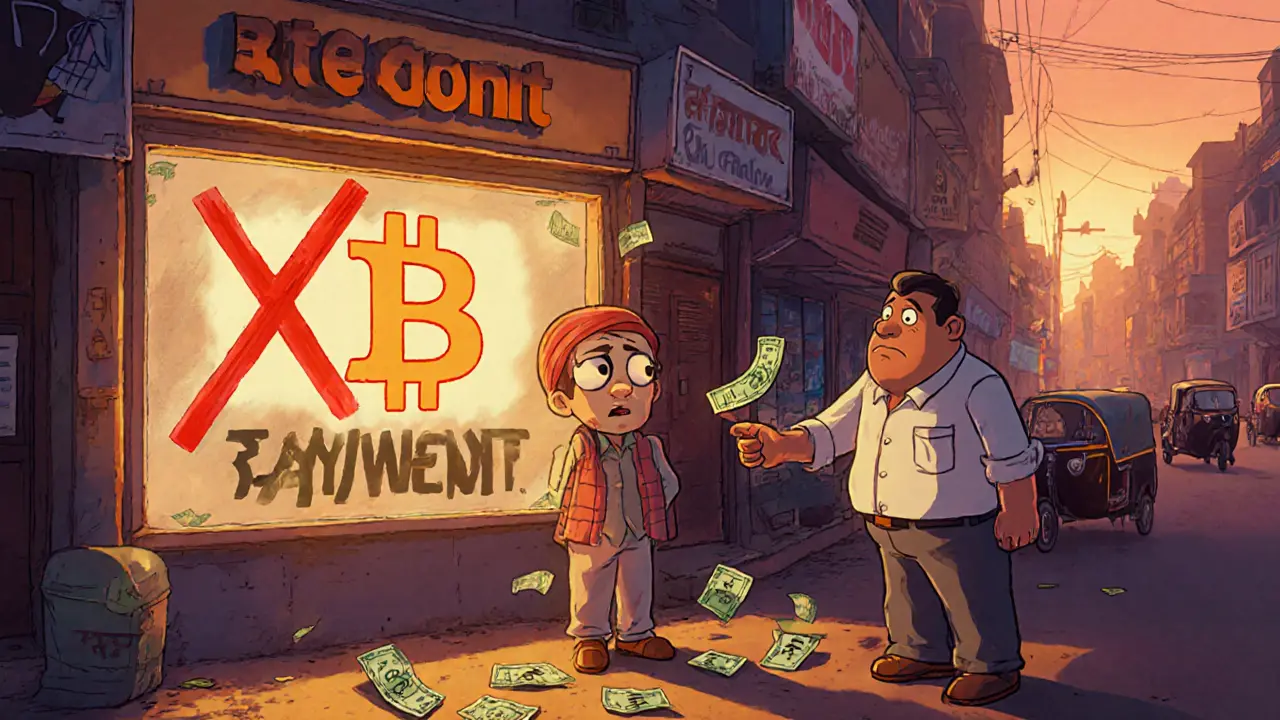Crypto Acceptance in India: What’s Really Happening with Bitcoin and Digital Payments
When you hear crypto acceptance in India, the growing adoption of cryptocurrencies like Bitcoin and Ethereum by individuals and businesses despite regulatory uncertainty. Also known as digital currency adoption in India, it’s not about government approval—it’s about what people are doing anyway.
India didn’t ban crypto. It just made life hard for exchanges. Banks shut down accounts. Payment processors pulled out. But that didn’t stop millions. In 2023, India ranked second globally in P2P Bitcoin trading volume, behind only Nigeria. People used WhatsApp groups, UPI transfers, and cash meetups to buy and sell. Why? Because remittances are expensive, inflation is real, and young Indians see crypto as a way out. This isn’t theory. It’s daily life for over 15 million Indians.
The digital rupee, India’s central bank digital currency (CBDC) launched by the Reserve Bank of India to digitize the national currency was supposed to replace crypto. But it’s not competing—it’s exposing the gap. The digital rupee is controlled, traceable, and limited to banks. Crypto is open, peer-to-peer, and global. One is a government tool. The other is a user choice. And while the RBI warns about risks, traders keep moving funds through offshore exchanges like Binance and OKX, often using local payment apps to bridge the gap.
Then there’s the cryptocurrency regulation India, the evolving legal and tax framework governing digital asset ownership, trading, and reporting in India. The 30% tax on gains and 1% TDS on trades didn’t kill the market. They just made it more transparent. People now report. They keep receipts. They use tools to track their buys and sells. The government didn’t win the war—it just forced crypto users to get organized.
What you’ll find in these posts isn’t speculation. It’s real stories: how a college student in Pune uses Solana tokens to pay for freelance work, how a small shop in Bangalore accepts Bitcoin through a local gateway, how traders in Mumbai navigate exchange shutdowns with decentralized wallets. These aren’t outliers. They’re the new normal.
There’s no magic bullet here. No one’s waiting for a law to change. People are building around the rules, not under them. If you’re wondering whether crypto is alive in India, look at the data. Look at the people. Look at the UPI transfers pinging through at midnight. It’s not about permission. It’s about practice.

